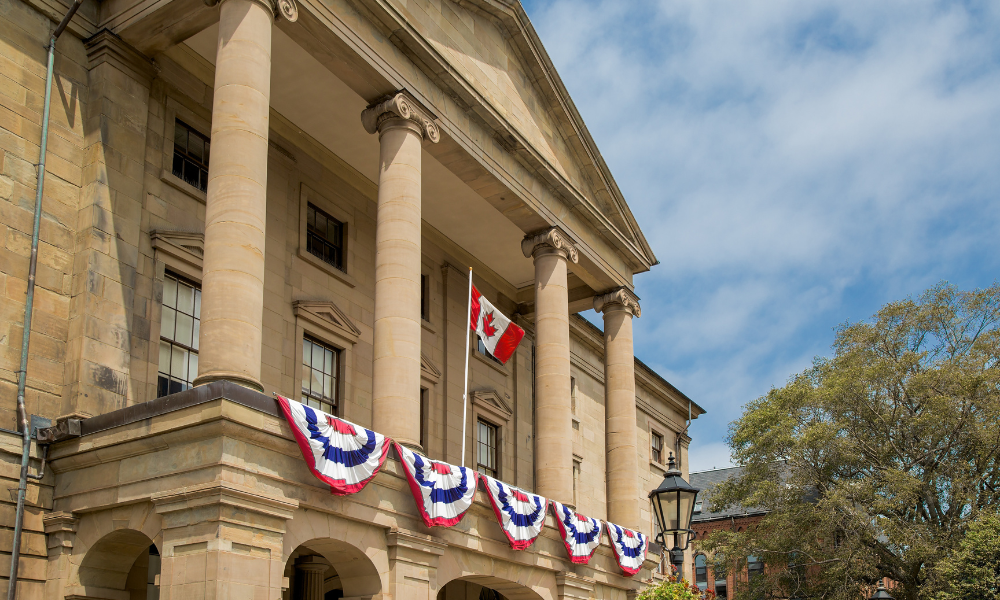Recruiters, employers face greater restrictions, licensing

The first phase of Prince Edward Island’s Temporary Foreign Workers Protection Act is set to take effect by April 1.
“Temporary foreign workers are making meaningful contributions to PEI’s economy and workforce and proclaiming the first phase of this act is a positive step in the right direction,” says Minister of Workforce, Advanced Learning and Population Jenn Redmond. “It is essential to establish protections that ensure temporary foreign workers receive fair treatment and the respect they deserve.”
Under the legislation, individuals recruiting foreign workers must be licensed to recruit temporary foreign workers into the province.
This is a welcome development, according to one advocate.
“It’s a really good step in the right direction,” says Ryan MacRae, a migrant worker advocate with the Cooper Institute, in a report from The Guardian.
Details of Temporary Foreign Worker Protection Act
PEI’s Temporary Foreign Workers Protection Act also states that:
- Recruiters and employers cannot provide false or misleading information about the laws of Prince Edward Island or Canada
- Recruiters and employers cannot take possession of or retain a foreign worker’s passport or other official documents (employers are permitted to take passport or documents temporarily for the purposes of copying or recording the information, but must return it to a worker right away)
- Recruiters and employers cannot misrepresent employment opportunities, including details of the position, duties, length of employment, wages and benefits, or other terms of employment
- Recruiters and employers cannot threaten deportation or threaten any other action for which there is no lawful cause
More details are available here.
PEI passed the Temporary Foreign Workers Protection Act in the provincial legislature in 2022. Consultations were held on the proposed regulations, including details on licensing requirements for recruiters in summer 2024.
Advocate calls for further reforms for foreign workers
Despite the legislative progress, MacRae is urging the provincial government to demonstrate greater commitment to protecting temporary foreign workers in Canada.
In The Guardian’s report, he notes that the provincial government has hired one person to oversee compliance, but more oversight may be needed to prevent ongoing exploitation.
“It’s a huge task to ensure that recruiters and employers are following the rules,” he says. “A lot of recruiters here are connected to agencies overseas, and it’s really difficult to track payments that happen outside the province.”
Also, the legislation requires recruiters to pay a $10,000 security deposit to the province as financial protection for workers. However, MacRae argues this is insufficient.
“There are tons of workers who are paying in excess of $10,000 just one worker to come here. So, you know, if that’s what one recruiter is getting off of one individual, then they’re going to be fine paying that fine because that’s just the cost of business to them.”
In November 2024, the Ontario government started investigating an Alberta-based recruiter who has facilitated the placement of temporary foreign workers in low-wage positions at Canadian Tire stores across Canada, according to a from The Globe and Mail. Eight foreign workers employed at a Toronto Canadian Tire location told The Globe that they paid AJ Immigration over $10,000 to secure jobs in Canada.
Delays to Temporary Foreign Workers Protection Act
MacRae also criticized the long delay in the implementation of the PEI Temporary Foreign Workers Protection Act.
“This act passed the house unanimously three years ago,” he says in The Guardian’s report. “We waited two years for a very small, basically, two-page list of regulations for the act. It took way longer than it should have. I don’t think the government was prioritizing it the way that it should have.”
In May 2024, Matthew MacFarlane, MLA Borden-Kinkora, said that it is “deeply concerning” that despite the passing of the legislation in 2022, this “critical piece of legislation has yet to come into effect even after two years”.
He noted that during the bill’s debate, it was expected that the implementation process would take approximately six months.
“The prolonged delay in implementing these protections is unacceptable,” said MacFarlane.
In 2024, Tomoya Obokata, United Nations Special Rapporteur on contemporary forms of slavery, said that the TFW Program “serves as a breeding ground for contemporary forms of slavery, as it institutionalizes asymmetries of power that favour employers and prevent workers from exercising their rights”.




